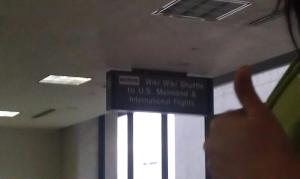The Pros and Cons of Crowdsourcing
All the authors in this week’s readings gave a well-informed summary of the benefits and pitfalls of crowdsourcing. Their analysis and decision of whether to use crowdsourcing in historical organizations raises important issues relating to the theory and practice of the historical field. Rosenzweig gives a great analysis of the strengths and weaknesses of Wikipedia. I believe the argument comes down to getting the facts as accurate as possible but also using crowdsourcing to open up the historical profession to as many different perspectives as possible. Historians should argue vehemently against objectively false information on Wikipedia like incorrect dates or sequence of events. Historians should have enough courage in their profession to acknowledge that this false information should be corrected. They should also realize the power and influence of Wikipedia. They should not ignore it because other people will use Wikipedia if historians have improved it or not.

Sign for the Wiki Wiki bus at the Honolulu International Airport. This term was the inspiration for the name Wikipedia
Crowdsourcing is not perfect but still should be utilized by historians because it also has great potential to open up the historical field to many new perspectives as well as accomplish objectives quicker, easier, and cheaper than was ever possible before. This is probably the most important part of crowdsourcing. As the L. Sprichiger and J. Jacobson article shows, history is complex and does not just have one storyline but many storylines and perspectives. Historians should embrace crowdsourcing because it makes it easier for many different perspectives to make their voice heard. Crowdsourcing has its positives and negatives but so does any other source that historians use to conduct their research. Historians should treat crowdsourcing as they would any other source by looking at the creators, the audience, the possible bias, and the historical context within which it was created.
Radical Trust
The History News article shows why historians should have radical trust in the general public to conduct crowdsourcing as long as the source is clearly identified and there are some basic ground rules that everybody must follow. As long as the source is known then people can evaluate the authority and importance they want to give to the crowdsourcing project. Ground rules, may be contested, but they are important so the organization does not enable people to just post hateful, offensive, or obscene items.
How Open Should Historians Be?
While I agreed with the goals of the “Telling an Old Story in a New Way: Raid on Deerfield: The Many Stories of 1704,” website project I also think some of their accomplishments were overstated. It was admirable that they shifted from a European centric perspective to showing the same event from each of the 5 different groups involved in the massacre. However, the website creators still had to decide that the Native American’s historical context and perspective was legitimate and worth telling. Even telling the story this way inherently left out other perspectives like a focus on women’s history, the technology at the time, or what role religion played in this event. I also wondered how far this inclusion of other perspectives should go. Should historians take other groups perspective into consideration no matter how insane, hateful, and violent they maybe?


